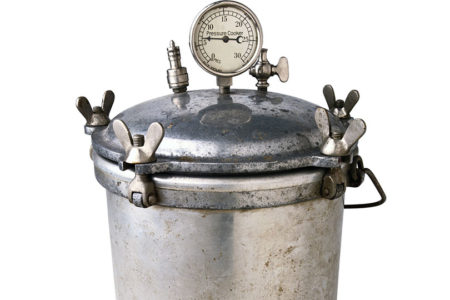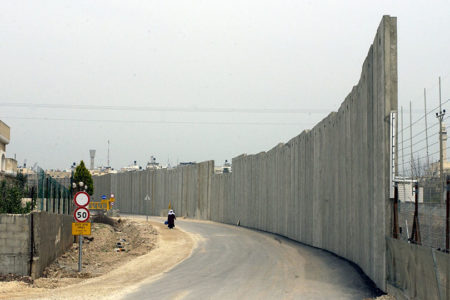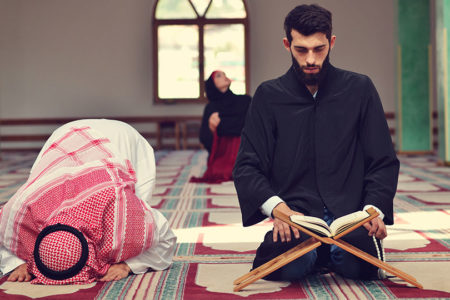Israel’s Messianic King
Zechariah 9:9–17
When Alexander the Great conquered the Middle East, he did not lay siege to Jerusalem. The Jewish people survived his conquest because God kept His promise to protect the city (9:8). After Alexander’s death however, cruel Grecian and Roman rulers subjugated Israel, while the nation hoped for deliverance by a military Messiah.
Zechariah revealed that a Messianic King was coming to deliver Israel, both physically and spiritually; and Zechariah described how the Jewish people would recognize Him.
Messiah Presented to Israel
The prophet began by announcing that Israel’s King is coming to them:
Rejoice greatly, O daughter of Zion! Shout, O daughter of Jerusalem!Behold, your King is coming to you; He is just and having salvation, lowly and riding on a donkey, a colt, the foal of a donkey (9:9).
Both Judaism and Christianity embrace this verse as a reference to Israel’s Messiah riding victoriously into Jerusalem. Christian -ity sees this prophecy fulfilled on what is traditionally called Palm Sunday (Mt. 21:4–5), whereas Judaism believes it will be fulfilled when the Messiah delivers Israel and establishes His Kingdom in Jerusalem.
Zechariah did not call Him “a” King, but “your” King (v. 9). He is Israel’s righteous Savior-King, its long-awaited Messiah. Such news should have evoked great joy in Israel. Verse 9 personifies the people of Jerusalem as a young woman who is commanded to shout with ecstatic joy at the news of the nation’s coming King. When Zechariah presented this revelation, there was no king on Israel’s throne, nor will there be one from the royal line of David until the Messiah comes.
Zechariah then revealed three characteristics of the Messianic King. First, “He is just,” that is, righteous by nature in conformity to God’s standard of morality and ethics. Messiah’s righteousness will be manifested in both His character and reign. The Messiah is righteous because, at His First Advent, He was supernaturally vir-gin-born (Isa. 7:14; Mt. 1:23), possessing no sin nature. The same cannot be said of any other king who ever lived, especially Alexander the Great, who was wicked, capricious, violent, and unjust.
Second, the Messiah will be revealed as “having salvation,” or endowed with salvation, showing Himself as a Savior-Deliverer. This was the reason for His First Coming, as He bore the guilt and paid the penalty for man’s sin. Today He is able to save completely and forever all who come to God through Him because He is the “author of eternal salvation” (Heb. 5:9; cf. 7:25). At His Second Coming, a remnant in Israel will be redeemed and delivered (Zech. 12:10; Rom. 9:26). Such was not the case with Alexander the Great, who destroyed and subjugated those he conquered.
Third, He is “lowly” in His soul and outward state. The Hebrew word for “lowly” means more than being humble or meek; it refers to one brought low by affliction, poverty, persecution, or bereavement (Ps. 22:6–7; Isa. 53:3–4; Mt. 8:20; 11:29; 2 Cor. 8:9). It seems out of character to speak of the Messiah-King in such a paradoxical way, for kings exude pride and pomp.
This Messiah-King did not ride into Jerusalem on a horse but “on a donkey, a colt, the foal of a donkey.” This prophecy was fulfilled in what is traditionally called His Triumphal Entry (Mt. 21:1–5). Early in Israel’s history a donkey was the animal on which kings and judges rode (Jud. 5:10; 10:4; 2 Sam. 16:1–2). By the time of Solomon, kings rode horses—symbols of pride, pomp, and power; plus they were instruments of self-reliance and strength in time of battle. Today the donkey is regarded as a lowly beast of burden.
Jesus instructed His disciples not only to get the young donkey but to bring the mother as well. The donkey was a young colt, never ridden and still running behind its mother. Jesus’ royal entrance into Jerusalem on the back of a young, untrained donkey symbolizes His coming in peace and humility and sheds light on Zechariah 9:9 in three ways. First, it is a Messianic prophecy. Second, Jesus is the long-awaited Messiah mentioned in this verse. Third, this prophecy was fulfilled at Jesus’ First Coming.
Zechariah then took a gigantic leap from the Messiah’s First Advent (v. 9) to His Second (v. 10). The Messiah rode humbly into Jerusalem at His First Advent. At His Second, He will descend from heaven on a white horse as Israel’s Redeemer-King to inaugurate His worldwide Kingdom rule.
Zechariah gave Israel reasons to rejoice over the Messiah’s Second Coming:
“I will cut off the chariot from Ephraim and the horse from Jerusalem; the battle bow shall be cut off. He shall speak peace to the nations; His dominion shall be from sea to sea, and from the River to the ends of the earth” (v. 10).
First, Messiah will establish worldwide peace. Second, He will destroy the weapons of war. The chariot of Ephraim, the horse of Jerusalem, and the battle bow all speak of weapons used in ancient warfare. These will be destroyed and the materials converted into implements of peace (Isa. 2:4; 9:4–5). Third, Ephraim and Judah will be united into a single kingdom of peace (Ezek. 37:15–22) for the first time since the days of Solomon. Fourth, He will establish peace among all the nations of the world, something not experienced in the annals of human history. Fifth, His reign and rule will begin in Jerusalem but shall cover the earth (Ps. 72:8–11).
A striking contrast can be made between the Messiah and Alexander the Great. Alexander was a depraved monarch who came riding on a horse in pomp and power with military brutality to make war, smiting and subjugating nations. Conversely, Messiah is the God-man who, at His First Coming, rode into Jerusalem in humility and peace, presenting Himself as Israel’s long-awaited King of righteousness and peace. At His Second Coming, Messiah will establish a righteous Kingdom of universal peace and prosperity.
Messiah’s Promise to Israel
Before the Messiah establishes His Kingdom, He must deliver and restore the nation of Israel. The Lord said, “‘As for you also, because of the blood of your covenant, I will set your prisoners free from the waterless pit’” (v. 11). God will deliver the Jewish people on the basis of the blood covenants He made with Israel: the Abrahamic and Mosaic Covenants (Gen. 15:8–21; Ex. 24:5–8). The “waterless pit” refers to an empty cistern that functions like a prison, as where Joseph was incarcerated by his brothers (Gen. 37:24). Release of the prisoners may have been an immediate reference to Jewish exiles freed from Babylon, but the prophecy ultimately refers to the regathering of the Jewish people at the end of the Great Tribulation.
The exiles in Babylon were called “prisoners of hope” because God promised them deliverance after their 70-year captivity (Jer. 25:11): “Return to the stronghold, you prisoners of hope. Even today I declare that I will restore double to you” (v. 12).
A remnant of Jewish people did return from captivity to their “stronghold” (Jerusalem) after the 70 years were fulfilled. The Lord declared He would “restore double” blessing to them—a promise with greater fulfillment in the Kingdom Age (v. 12).
In verse 13, the Lord pictures Himself as a mighty warrior using Judah as His “bow” and Ephraim (the northern kingdom) as His arrow to defeat His and Israel’s enemies. Power was (and will be) given to Israel, “like the sword of a mighty man,” to destroy her enemies, especially “Greece,” but also her enemies at the end of the Tribulation (v. 13; 14:14).
Many scholars say the word Greece refers to the terrible period of Grecian persecution under Antiochus IV (Epiphanes). Antiochus desecrated the Temple by sacrificing a pig on the altar. He also tortured Jewish people and forbade them to practice their religion. An Israelite family led by Mattathias revolted against Antiochus’ domination. In a three-year conflict with Antiochus, Mattathias’s son Judah liberated Jerusalem, cleansed the Temple from heathen desecration, and reestablished Jewish worship (168–165 B.C.). The family became known as the Maccabees, from the Hebrew word for “hammer.” The Jewish holiday of Hanukkah (Feast of the Dedication) was established to commemorate this event.
Messiah’s Protection of Israel
In verses 14–15 the Lord is depicted as a mighty warrior ready to do battle with His enemies, while hovering over Israel to protect it:
Then the Lᴏʀᴅ will be seen over them, and His arrow will go forth like lightning. The Lord Gᴏᴅ will blow the trumpet, and go with whirlwinds from the south. The Lᴏʀᴅ of hosts will defend them.
He will marshal His troops with the sound of the “trumpet,” and His “arrow” will strike the enemy at the speed of lightning. The Lord will sweep away His enemies with hurricane force, like “whirl-winds from the south.”
Verse 15 says, “They shall devour and subdue with slingstones. They shall drink and roar as if with wine; they shall be filled with blood like basins, like the corners of the altar.” Commentators interpret this two ways. Some teach it refers to Israel devouring its enemies with God’s protective help. Others teach that the verse describes a banquet to celebrate God’s victory over His and Israel’s enemies. The latter interpretation seems best in this context. Those celebrating will trample the “slingstones,” or spent weapons, of their enemy. Israel will roar in joyful exuberance like a person drunk with wine and filled with food from a victory banquet. The text simply states that banquet provisions will be plentiful, and participants will be filled with drink like sacrificial basins and with meat like the corners of the sacrificial altar.
This prophecy was partially fulfilled when the Maccabees defeated Antiochus Epiphanes. But its ultimate fulfillment will occur when the Messiah’s enemies are destroyed at His Second Coming.
Messiah’s Provision for Israel
Zechariah revealed what will take place at the Messiah’s Second Coming. First, the Lord will bring spiritual life, or “save,” the remnant of Jewish people who survive the Tribulation (v. 16; 12:10—13:1, 9; Rom. 11:26). Then the Lord will shepherd “the flock of His people” as a shepherd does his sheep, guaranteeing Israel safety and security (v. 16). He will look on redeemed Israel as a sparkling stone—His treasured possession—that will glitter “like the jewels of a crown” (v. 16; cf. Ex. 19:5) in the Millennial Kingdom and set Israel as a “banner,” or standard, over His glorious Kingdom rule (v. 16).
In that day, the great splendor of the Lord’s “goodness” and “beauty” will shine throughout Israel (v. 17). Sowed seed will produce a great harvest because of abundant rain. (See Zechariah 10:1.) “Grain shall make the young men thrive, and new wine the young women” (v. 17). Grain and wine symbolize productivity, plenty, and prosperity that all will enjoy during the Kingdom Age.
There is an innate longing in Jewish hearts for the coming of their Messianic King. When the Messiah comes, He will bring redemption, deliverance, and establish His Kingdom of universal peace.






